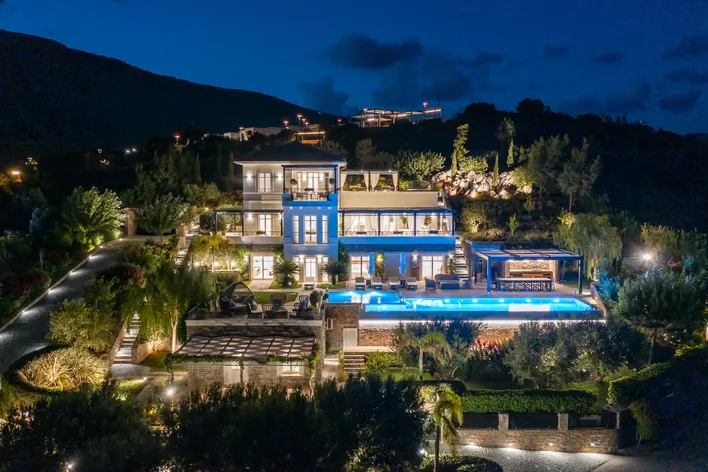Crete, Greece’s largest island, offers a compelling blend of natural beauty, rich history, and a vibrant culture that attracts many homebuyers. Whether you’re considering a permanent move, seeking a vacation home, or looking for an investment property, Crete’s real estate market has something to offer. This guide provides essential insights to help you navigate the market and make informed decisions.
Overview of Crete’s Real Estate Market
Crete’s real estate market is diverse, catering to a range of preferences and budgets. The island is divided into four main regions: Heraklion, Chania, Rethymno, and Lasithi. Each area has its unique characteristics, amenities, and types of properties available, from modern apartments in bustling cities to traditional homes in quaint villages and luxurious villas overlooking the sea.
Heraklion: As the capital, Heraklion offers a mix of urban and suburban living with a bustling city atmosphere. Here, you’ll find modern apartments, historical homes, and commercial properties. It’s a great choice for those who want easy access to urban amenities, cultural sites, and transportation links.
Chania: Known for its picturesque old town and Venetian harbor, Chania is a favorite among expats and tourists. The real estate here ranges from restored historical houses to new developments. The region combines charm with modern conveniences, making it ideal for both permanent residents and holiday homebuyers.
Rethymno: Rethymno offers a blend of old-world charm and modern living. The region’s real estate market includes beachfront properties, rural homes, and urban apartments. Rethymno is particularly attractive for those seeking a balanced lifestyle with access to beaches, mountains, and cultural events.
Lasithi: The eastern part of Crete is less developed and offers more affordable options. It’s perfect for those looking for tranquility and natural beauty. From coastal towns like Agios Nikolaos to the rural hinterlands, Lasithi provides a range of properties, including villas, traditional houses, and modern apartments.
Factors to Consider When Buying Property in Crete
Legal Requirements:
Foreigners can buy property in Crete, but the process can vary based on nationality. EU citizens have fewer restrictions, while non-EU citizens may need additional permits. It’s essential to work with a local lawyer who can help navigate the legal landscape, ensuring all documentation and procedures are correctly handled.
Property Prices:
Property prices in Crete can vary widely based on location, property type, and proximity to the coast. Coastal and urban areas tend to be more expensive, while inland and rural areas offer more affordable options. Conduct thorough market research and consider working with a reputable real estate agent to find properties that fit your budget and needs.
Financing and Mortgages:
Financing a property purchase in Crete can be done through local banks, which offer mortgage options to both residents and non-residents. Interest rates and terms can vary, so it’s advisable to compare offers from different banks. Ensure you understand the financial commitments involved, including additional costs like taxes, insurance, and maintenance.
Property Inspection and Due Diligence:
Before finalizing a purchase, conduct a thorough inspection of the property. This includes checking the structural integrity, utilities, and any potential legal issues such as zoning restrictions or property disputes. Hiring a professional surveyor can provide peace of mind and help avoid future problems.
Market Trends and Investment Opportunities
Tourism Influence:
Tourism significantly influences Crete’s real estate market. Properties in tourist hotspots often have higher demand and can be lucrative investments, particularly for those interested in short-term rentals. Areas like Chania, Heraklion, and popular coastal towns attract many tourists and offer potential for rental income.
Sustainable and Eco-Friendly Homes:
There is a growing trend towards sustainable and eco-friendly homes in Crete. Properties with features like solar panels, energy-efficient designs, and natural materials are becoming increasingly popular. Investing in such properties can not only reduce environmental impact but also attract eco-conscious buyers and renters.
Renovation Projects:
Many traditional homes in Crete, especially in rural areas, are available at lower prices but may require renovation. These properties can be a good investment, allowing buyers to restore and modernize a home while preserving its traditional charm. Be sure to budget for renovation costs and consider working with local craftsmen who are familiar with traditional building techniques.
Tips for a Successful Purchase
- Work with Professionals: Engage local real estate agents, lawyers, and surveyors to guide you through the buying process. Their expertise can help you avoid common pitfalls and ensure a smooth transaction.
- Visit Multiple Properties: Don’t rush into a purchase. Take the time to visit multiple properties, understand the market, and find a home that truly meets your needs and preferences.
- Understand the Local Market: Each region of Crete has its unique characteristics and market conditions. Familiarize yourself with the area where you plan to buy, including its amenities, infrastructure, and community.
- Consider Long-Term Plans: Think about your long-term plans for the property. Whether it’s a permanent residence, a holiday home, or an investment, ensure it aligns with your future goals and lifestyle.
Conclusion
Crete’s real estate market offers a wealth of opportunities for homebuyers, whether you’re looking for a permanent move, a vacation home, or an investment property. By understanding the market, considering key factors, and working with local professionals, you can find the perfect property to enjoy all the benefits this beautiful island has to offer. Embrace the Cretan lifestyle, and you’ll soon see why so many have chosen to call this enchanting island their home.


